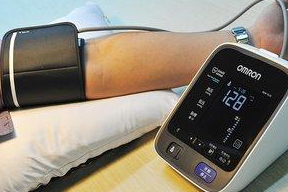In our country, about 1 in every 3 adults has hypertension, which is a chronic disease that can be controlled but requires lifelong treatment.
After being diagnosed with hypertension, especially older people need to be particularly careful about the risk of stroke. Although not all hypertensive patients will have a stroke, the chances of stroke are higher for people with hypertension.
Once diagnosed with hypertension, to prevent stroke, remember to control these 3 types of foods, do not ignore
High salt consumption is the “culprit” that leads to high blood pressure. 70% to 90% of hypertensive patients exceed the recommended salt intake, with nearly 12% exceeding 12 grams. Even though you can control the amount of visible salt in the salt shaker, hidden salts in sauces and seasonings can easily lead to excess salt intake. Snacks like potato chips, fried chicken, pickles, sausages, lunch meats, beef jerky, roasted chicken, canned foods, and fast food are rich in salt and should not be overlooked.
Salt not only depletes calcium from the body but also affects normal blood pressure. To prevent and improve hypertension, salt intake must be controlled.
Long-term high sugar intake can shorten lifespan by 10 to 20 years! Sugar is more likely to cause hypertension than salt.
Excessive sugar intake can cause blood vessels to constrict, increase heart rate, lead to a sudden rise in blood pressure, promote obesity, and trigger diabetes. Besides avoiding sweets, you also need to be cautious of other sugar-containing foods like sugary drinks, as they can also contribute to elevated blood pressure.
Fatty foods like pork should be avoided after being diagnosed with hypertension. Regular consumption of fatty foods can increase blood pressure, blood lipids, and cholesterol levels, especially for those already suffering from hypertension. It’s essential to avoid overeating to prevent worsening blood pressure and stroke.
In addition to fatty foods like pork, fried foods, animal organs, dairy products, etc., all have high fat content and are best avoided for individuals with hypertension.
For hypertensive individuals, avoiding tea, coffee, and alcoholic beverages is recommended to prevent the risk of stroke and worsening blood pressure.
Many people have a habit of drinking tea, and those with high blood pressure can enjoy mild teas like green tea or flower tea. However, it’s advisable to avoid strong teas, as high levels of caffeine can lead to insomnia and irritability, affecting emotions and blood pressure.
In case of high blood pressure, it’s important to reduce alcohol consumption to maintain blood pressure within a reasonable range. Alcohol deposition in blood vessels can worsen hypertension, accelerate arteriosclerosis, and increase the likelihood of stroke.
Although coffee is known for its energizing effects, it’s not suitable for individuals with high blood pressure. Caffeine can exacerbate hypertension symptoms, trigger nervousness, and hinder blood pressure control.
These economical foods are experts at lowering blood pressure. By consuming a small portion daily, you can lower risks and prevent strokes
During the hot summer, one must include mung beans in their diet. Mung beans are rich in dietary fiber, aiding digestion, reducing blood lipids, and assisting in the elimination of excess fluids, thereby reducing pressure on the blood vessel walls and aiding in lowering blood pressure. Stir the mung beans while cooking to prevent sticking, and adding lotus leaf and chrysanthemum can enhance the blood pressure and lipid-lowering effects.
Edamame is rich in nutrients suitable for hypertensive patients, containing proteins, potassium, B vitamins, and dietary fiber, all beneficial for maintaining blood pressure and protecting cardiovascular health.
After boiling edamame, tossing them with vinegar ensures a balanced nutrition and enhances the blood pressure-lowering effects.
The dietary fiber Alginate found in seaweed promotes cholesterol excretion, inhibits absorption, and reduces blood pressure. For middle-aged and elderly people, seaweed also contains rich calcium, supplementing calcium levels and reducing cholesterol absorption, effectively clearing excess cholesterol from blood vessel walls.
There are various ways to enjoy seaweed, such as seaweed soup, cold seaweed salad, or a combination with mung beans to reduce heat and tension.
This article introduces the foods that should and should not be consumed after being diagnosed with hypertension. In daily life, to maintain stable blood pressure, sufficient sleep and a positive emotional state are essential.


